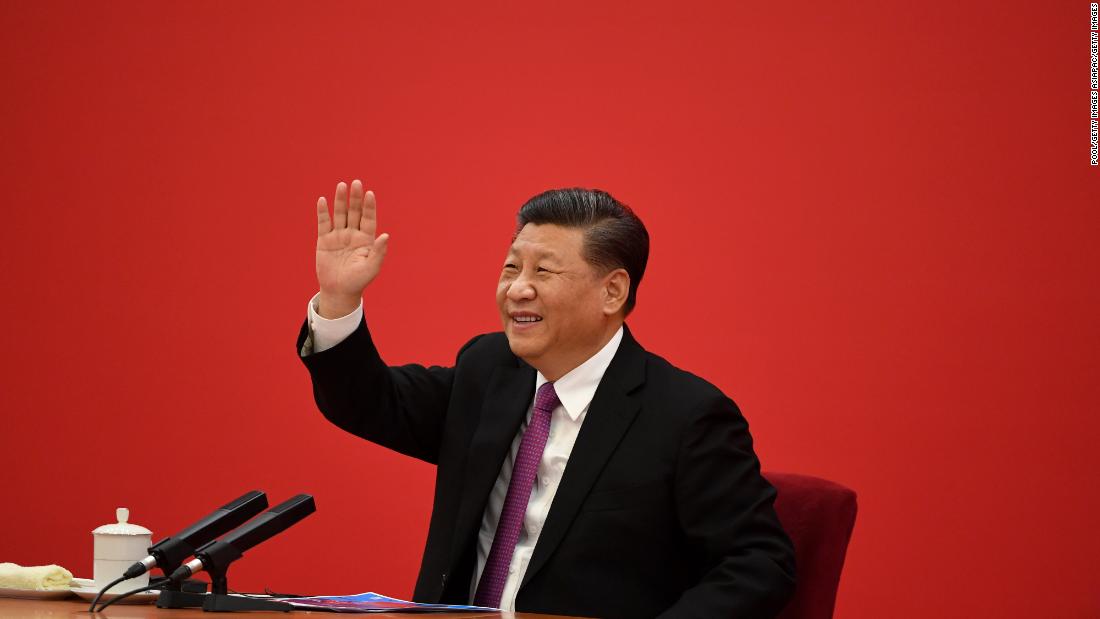D
Deleted member 15887
Guest
Do you think China will accelerate the pace of urbanization in this 5-year plan? To 75% by 2030 rather than 70%?
But there is no democracy. Without magic lamp of democracy progress doesn't happenWOW!!!! Coming from fake news CNN, It's an acknowledgement that China economic system is superior. You can't sugarcoated a lie if the result is so visibly obvious.
from beijingwalker (pakistan defense forum)
As most countries struggle to plan weeks ahead, China just set its agenda for the next 15 years
Analysis by , CNN
Updated 0334 GMT (1134 HKT) October 29, 2020
(CNN)The coronavirus pandemic has left governments in disarray and made planning even weeks ahead difficult. In Beijing this week, however, China's leaders met to set specific policy for much of the coming decade.
In a , top Chinese Communist Party (CCP) officials hashed out the country's next five-year plan -- and even drew up a "vision" for 2035, a long-term proposal for the year which President Xi Jinping has set as a deadline for China to "basically achieve socialist modernization."
Whatever is agreed at the plenum, by a tiny cohort of leaders, will shape policy for the entire country of 1.3 billion people, implemented at all levels by Communist Party bureaucrats, state-controlled enterprises, and the all-powerful security state.
While full details of the fresh may not be unveiled until China's rubber-stamp parliament meets next year, key goals that have been previewed in state media include a at all costs, and in technology and science, amid increasing pressure from the United States on that front.
This kind of long-term planning is in contrast to the often flip-flopping nature of democracies, where promises and plans set in place by one government are vulnerable to being undone by the next -- a point in Chinese state media to defend the legitimacy of Beijing's authoritarian system.
Few American presidents have put this into starker relief than Donald Trump, who upon taking office scrapped a , withdrew the US from the , and set about dismantling the , essentially reversing all the long-term policy established by the Obama administration.
"China is a country that keeps its words," state news agency Xinhua said in a Thursday. "Once the five-year plan is finalized, the country -- from the central government to local governments -- will ensure its implementation."
Of course, the reason China can make such grand plans, and implement them, is that it is ruled by an authoritarian system that brooks no dissent, ensuring leaders are confident of political stability for the next five, if not 15, years.
Since becoming leader in 2012, Xi has , collecting a host of official titles and clearing the way to rule for life. He's also ruthlessly stamped out any potential challenges from within the Communist Party, launching a earlier this year that is set to run until 2022, when his second term as General Secretary and head of the military is due to end.
, a top official said the anti-corruption campaign should be in the mold of the "Yan'an rectification," a key campaign by Mao Zedong to purge rivals and seize absolute control of the Communist Party in 1941.
Xi to follow Mao in another way, too, potentially assuming the title of Chairman when his current terms end, essentially allowing him to retain power while avoiding the awkwardness of bucking the tradition of a two-term presidency (though any legal barriers to this were removed by Xi in 2018).
This absolute power provides the confidence needed to set ambitious targets for the country's 14th five-year plan, and even the mooted this month, looking ahead to a year when Xi will celebrate his 82nd birthday.
, David Bandurski, a China politics expert at the University of Hong Kong, said such efforts are less about "goals met and goals set, but more essentially about renewing the CCP's claims to the legitimacy of its power, its system and its methods."
Legitimacy arguments will likely be bolstered in state media and official announcements by the chaos expected to be unleashed next week during the US election -- which, after an incredibly ugly campaign between Trump and Democratic rival Joe Biden, could drag on for long after polls close as votes are counted and disputed, potentially ending up before the Supreme Court.
Democracy is messy. Yet , any failings of a competing system are an opportunity to bolster their own, one that pulled off a display of absolute confidence and stability this week.

The coronavirus pandemic has left governments in disarray and made planning even weeks ahead difficult. In Beijing this week, however, China's leaders met to set specific policy for much of the coming decade.
edition.cnn.com
Urbanisation may not always be a positive thing. A country needs rural population to maintain its birth ratesDo you think China will accelerate the pace of urbanization in this 5-year plan? To 75% by 2030 rather than 70%?
Urbanisation may not always be a positive thing. A country needs rural population to maintain its birth rates
How do countries like Greece and Spain maintain their GDP at current levels after going through recession and expecting dim prospects?China sets the goal of matching middle-level developed country in GDP per capita by 2035.
Poland and Greece are examples of entry-level developed country. Middle-level developed countries would be Spain and South Korea? So $30,000 in GDP per capita? What about inflation?
(English-language report no full text)
(Chinese text on 2035 development goals)
Note the middle-level developed country GPD per capita was a 2050 development goal.
Euro. The pitfall is they can't easily depreciate their currency (making export and tourism more appealing) at will.How do countries like Greece and Spain maintain their GDP at current levels after going through recession and expecting dim prospects?
I'm not an economics expert, but isn't currency devaluation bad idea when you are a net importer?Eur
Euro. The pitfall is they can't easily depreciate their currency (making export and tourism more appealing) at will.
